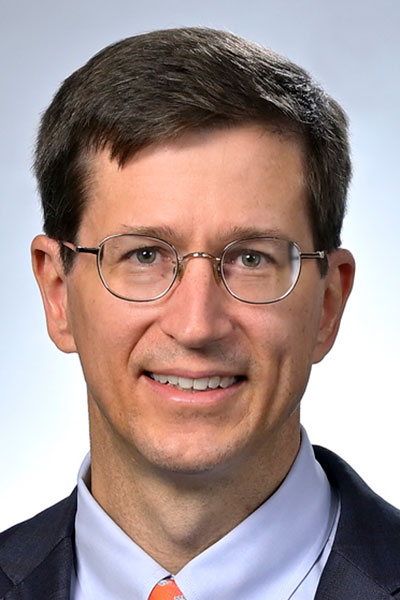
Comparing Beta-Cell Replacement vs. Artificial Pancreas—Smart Insulins with a Focus on New Innovations—Untested Technologies
Monday, June 26, at 3:15 p.m. PT
Room 30
San Diego Convention Center
(Livestream Available)
Presentation: Comparing Beta-Cell Replacement vs. Artificial Pancreas: For Beta-Cell Replacement

Michael R. Rickels, MD, MS
Professor of Medicine,
University of Pennsylvania Perelman School of Medicine
What is your presentation about?
My presentation will be comparing beta-cell replacement vs. artificial pancreas as interventions for individuals with type 1 diabetes complicated by impaired awareness of hypoglycemia. As a debate session, I will present an argument “For Beta-Cell Replacement” and my colleague, Bruce Buckingham from Stanford University, will present an argument “For Emerging Artificial Pancreas Innovations.” I will mostly focus on the advantages for glucose regulation possible with restoration of physiologic islet insulin and glucagon secretion afforded from cellular therapy.
What makes this topic important in 2023?
There have been exciting recent advances in both beta-cell replacement and artificial pancreas technologies that will be highlighted in this session. Regarding beta-cell replacement, the past year has seen very encouraging reports of long-term outcomes following deceased donor islet transplantation and the first-in-human results with stem cell-derived islet transplantation that offers a novel and potentially limitless source of cellular therapy for the treatment of diabetes.
How did you become involved with this area of diabetes research or care?
As a first-year endocrinology fellow, I was consulted by the transplant surgery service to see the first individual with type 1 diabetes who received an islet transplant at the University of Pennsylvania that was performed by Ali Naji. I found the case fascinating and obtained my first funding from the NIH and JDRF under the mentorship of Drs. Naji and Karen Teff, an expert in metabolism, to investigate the function of intra-hepatically transplanted islets and their impact on restoring glucose homeostasis in type 1 diabetes.
How do you think your presentation will impact diabetes research or care?
Most endocrinologists receive very little exposure to beta-cell replacement therapy options, such as pancreas or islet transplantation in their training, and even fewer develop any experience managing immunosuppression. This is quite different for nearly every other specialty division within internal medicine that trains dedicated transplant professionals. Hopefully my presentation will highlight the potential for beta-cell replacement to provide a functional cure for diabetes, encouraging providers to better understand rather than avoid considering this option for appropriate patients, while also emphasizing current limitations that require continued research investment to broaden the reach of cellular therapy in clinical practice.
What are you most looking forward to at the 83rd Scientific Sessions?
The opportunity to interact with colleagues and discuss advances in basic and clinical science in-person. In particular, there are a lot of new clinical trial data being presented this year and we will have much to talk about and assimilate into our future clinical and research practices.